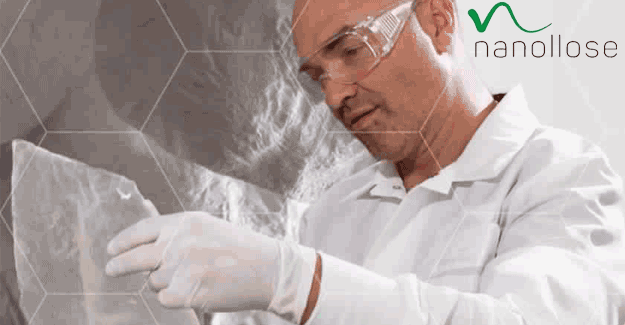
Nanollose To Research Microbial Cellulose For Tissue Engineering
Australian company Nanollose Limited was recently in the news for successfully developing its revolutionary Tree-Free Nullarbor(TM) fibre into garment, proving its commercial success. And thus offering the textile and apparel industry a sustainable cellulose fibre, in contrast to the conventionally environmentally degrading viscose fibre. The garment was created using the latest 3D sweater-knit technology. According to Nanollose, the fibre performed extremely well and successfully withstood the industrial manufacturing process. Nanollose uses a low-cost and eco-friendly fermentation process to grow fibres that could become a sustainable alternative to conventional plant-derived cellulose fibres. The company's process, which uses streams from various large-scale industries like sugar, wine and food, has the ability to produce 'plant-free' cellulose. Nanollose managing director Alfie Germano said, "This garment represents another world first achievement for the company and takes us a step closer to offering global clothing and textile manufactures with a sustainable fibre alternative. We now plan on refining our fibre-to-garment manufacturing process by implementing critical learnings uncovered during the process, with work already underway to create a showcase garment for clothing and textile groups." The company has now entered into a research agreement with Murdoch University to progress the company's research into the use of its microbial cellulose (MC) as a scaffold in tissue engineering. The agreement provides resources to progress research using Nanollose's microbial cellulose in human and animal tissue engineering applications, with Nanollose retaining all Intellectual Property resulting from the research. The agreement will encompass two discrete projects over the course of approximately six months to determine if Nanollose's microbial cellulose can be used as scaffolds for human tissue growth, a market expected to reach US$ 11.5 billion by 2022. The second project will assess the viability of Nanollose's microbial cellulose as a scaffold for animal tissue growth for potential applications in the rapidly emerging field of artificial meat products. While Nanollose is currently focussed on commercialising its revolutionary Tree-Free Nullarbor(TM) fibre, its microbial cellulose technologies also have potential applications in a wide range of other markets including paper and packaging, medical and agricultural.
Textile Excellence
If you wish to Subscribe to Textile Excellence Print Edition, kindly fill in the below form and we shall get back to you with details.













